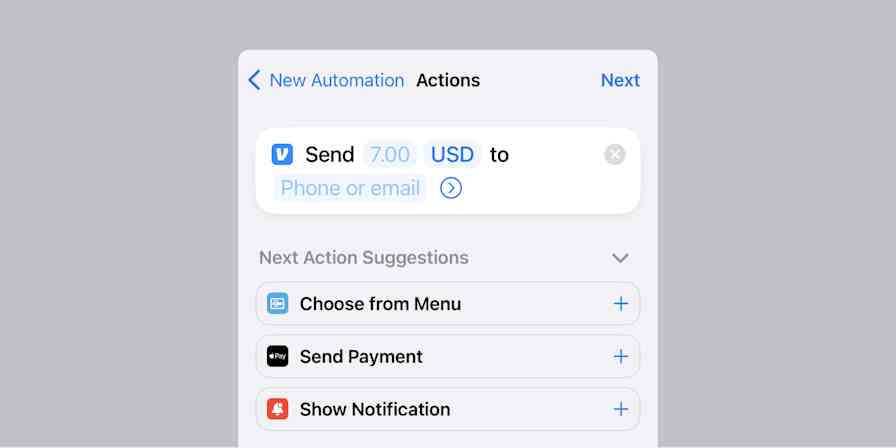I've been a working parent for three years. I've worked remotely the entire time, and it has been such a blessing in my family life.
I don't have a commute, so I get to spend more time with my kids before and after school. Zapier provides flexible working hours and unlimited paid time off, so I don't have to worry about finding babysitters, and backup babysitters when their daycare is closed or they're sick. Not only that, but I have help, both human and financial.
I'm one of the lucky ones. And yet.
When my kids were babies it was physically painful to be away from them. I went back to work 12 weeks after having both kids. I was breastfeeding, which meant I was pumping every three hours while trying to work.
Let's talk about what that actually means. Every three hours I was hooked up to a machine for 20 to 30 minutes. It pulled at me, making obnoxious sounds while I sat up straight as a board so as not to spill a golden drop. It's the complete antithesis of what the "promise" of breastfeeding is—or, what it's idealized as. Instead of close-knit bonding, smelling your baby's hair and cuddling their soft skin, your body is essentially turned into a machine with a singular purpose: making a product.
I was worried about falling behind at my job, so I didn't take breaks to do this; I worked through it. I worked through the surging hormones, the total discomfort and pretended it was fine.
My kids are toddlers now, and I'm not breastfeeding anymore. The pain of leaving them is still there.
As a working parent, you need to conserve as much of your brain space as possible. Try these automation for working parents to help free up some of your time.
Retreats are great, but really hard for parents
Zapier employees go to three retreats a year. These have been an invaluable tool in learning new skills, becoming aligned with the company's goals, and creating relationships with my coworkers. They also mean I have to be away from my kids for about a week, three times a year.
I miss important moments. I wasn't there when my daughter first learned to stand. I was really sad about it, but I pretended it was fine.
I was scheduled to go to one of these retreats when my son was 3 and transferring to a new school. He's never taken to change particularly well, and this was going to be a rough time for him. I knew he would end up okay—kids are resilient—but I was devastated.
When I was growing up, my mother was constantly working. I want to be clear—my mother is badass. She has an extremely successful career in a male-dominated field, but that meant she was very busy and had a lot to prove. She wanted to be the best. Watching her dismantle barriers with a true devotion to always learn more and get better was deeply inspiring.
My own role as a Customer Champion for Zapier is so different, but my goals are just the same. Like her, I want to be the best. I want to learn and grow and pave new paths.
I am so proud of her and so glad I got to have her as an example. And yet.
I can still feel the shame and sadness I felt as a child when my mother wasn't there for school functions, or birthday parties, or the myriad other moments when I needed her. I'm not the workaholic my mother was. I'm there for, and with, my kids far more often than I'm not. I know my experience as a child is not theirs, but even under the best conditions, it hurts.
I considered bailing on the last retreat because I'd been so anxious about leaving my son, but it wasn't an easy choice. I want to participate in work events. I think they're valuable. And yet, I don't want to pretend it's fine.
It's sad. It's hard. It sucks.
The cliché, "You can't have it all" is true. Pretending that it's fine is worse.
Benefits only go so far—it's also about culture
Before we can try to address the emotional tax of caregiving and working, we need to ensure that there are structural policies in place that take into account the needs of caregivers.
Companies need to give employees time to be parents. Zapier provides 14 weeks of paid parental leave for new parents of biological or adopted children, and unlimited paid vacation days (with a two-week minimum).
Companies need to provide comprehensive healthcare, dental, and vision coverage with feasible options to opt in for dependents.
If you require travel for work, make sure breastfeeding parents will have their needs met. At Zapier, we cover the cost of milk shipping, we'll make sure your hotel room has a refrigerator, and that you have a comfortable place to pump at any venue.
Offer flexible hours whenever possible. Make it easy for folks to schedule doctors' appointments, school pickups, even grocery shopping.
Even if you have those bases covered, the work is not done.
I shared these thoughts with my coworkers while contemplating whether to attend the retreat and was met with messages of comfort and support—without exception.
I realized that if I can't have it all, what I want is to come to work authentically myself. That means I will be honest about the contradictions of parent/work life.
When my kids have dumped their breakfast on the floor for the tenth time in an hour, I'm blissfully happy to kiss them goodbye and go to work where it's quiet and the only food fights are discussions about which hot sauce is best (Frank's, obviously).
On the first night of a retreat when I have the bed to myself and get the pleasure of sleeping past dawn, I'm glad that my kids are anywhere but here. But in the hard moments, I want to be honest with myself and my team that I am hurting. I want to know that when I do have to make the tough choices of missing a kid thing or missing a work thing, it doesn't mean I'm any less of a good mom or any less of a good employee.
Parents and caregivers make up the majority of the workforce, yet it can still be taboo to talk openly about the often conflicting demands of these two worlds.
We need workplaces to establish an environment of psychological safety.
Make it clear from the minute an employee is on board that their needs and commitments outside of work are valid and supported. Encourage and enforce a 40-hour max work week.
Establish safe spaces where employees can discuss the challenges that come up. At Zapier, we have Slack channels dedicated to parenthood, making friends, mental health, and so much more.
Lead by example. If you are in a leadership position at your company, talk openly about your own challenges. Take full parental leave. If you're missing some work to take your kid to the doctor, share that on your public calendar. Employees need to know that there will not be negative consequences.
I ended up going to that retreat, and it was hard, but while there, I was able to establish a clear path for my career growth and strengthen my relationship with my coworkers. I'm glad I went.
Every day, someone would check in on me, ask me how my son was doing, ask to see a picture, or share their own stories of missing their families back home. They acknowledged both the pleasure of getting away and the sacrifice. They normalized it.
Because it's not fine to miss out on those moments. Feeling sad about it, and choosing to do it anyway, is nothing to be ashamed of.
It's not fine. It just is.
Hero image credit: Carolina Escobedo-Garcia





